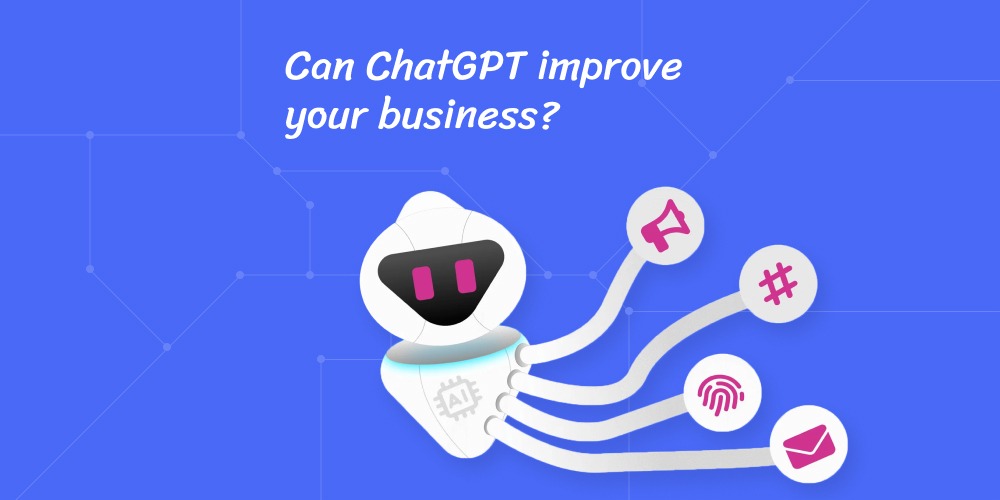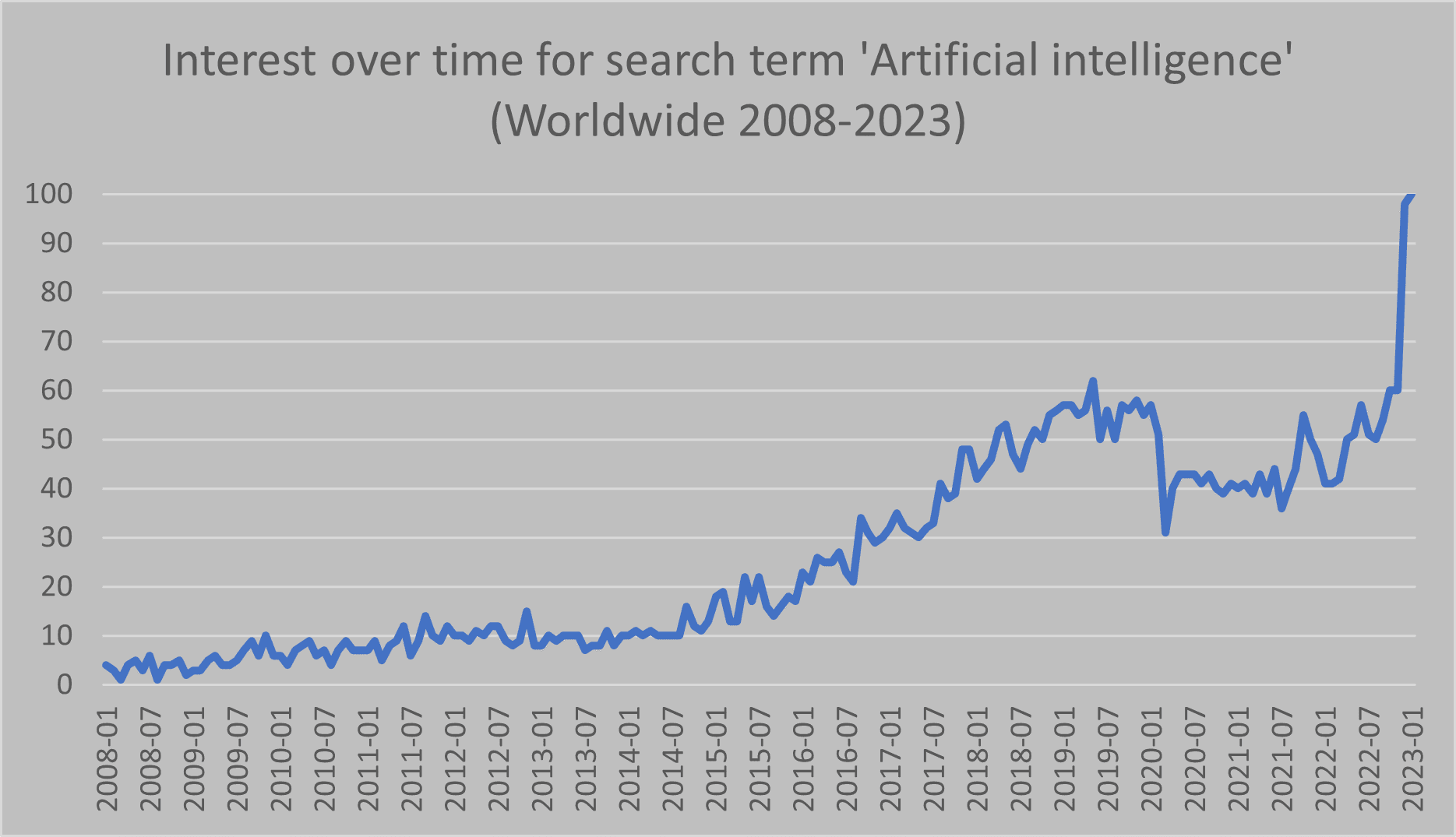Can ChatGPT improve your business?
ChatGPT has taken over the web and with it, raised a lot of concerns. This article will cover what it is, how it works and whether you should use it.

(Originally posted on the Scaramanga website, 25 January 2023)
According to Google Trends, the search term ‘artificial intelligence’ is at the highest it has ever been and, as of January 2023, is not slowing down.
But why the sudden increase?

Google Trends highlights that the spike started around 4 December 2022, which correlates to the release of ChatGPT.
ChatGPT is a chatbot which had its prototype released on 30 November 2022 and became a hit. One week after releasing the prototype, the chatbot had over one million users, alongside publications released questioning its authenticity and civil servants calling for AI to be regulated.
To understand the pros and cons, you need to understand how it works.
How does ChatGPT work?
ChatGPT is a type of language model that uses deep learning to generate human-like text. It is based on the transformer architecture, which was introduced in a 2017 paper by Google researchers. The model is trained on a large dataset of text, such as books or articles, and uses this data to learn the patterns and structures of human language.
Once trained, the model can generate new text that is similar in style and content to the training data. This is done by predicting the next word in a sentence, given the previous words as input. The model uses a technique called “sampling” to generate a diverse set of possible next words, and then chooses the one that is most likely based on the input.
The above explanation was given to me by ChatGPT in under 30 seconds when I asked it “How does ChatGPT work?”.
It works like a chatbot should do, you ask it something and it provides you with an answer.
Plagiarism in AI generated content
One of the largest concerns about the chatbot is plagiarism. When I typed into my Google search “Is Chat GPT…” four of the ten autofill searches asked if the chatbot is plagiarism free.
I wanted to test its authenticity. Last year, I wrote an article on accessibility and the things you need to consider when applying it to your social media. This took me a few days of researching on top of the knowledge I already knew and a few days of writing, till I had it in a state I was happy to publish.
I asked the chatbot to write me an article on writing an accessible social post.
After under one minute, I received a 577 word article providing five great points that I had also covered in my own article, as well as a good introduction and conclusion.
But, while I can praise its timing and accuracy, after inserting the written text into Quetext’s plagiarism checker, it detected 24% of the article was plagiarised. When I inserted the text into Grammarly’s checker, they detected signs of ‘significant plagiarism’.
So yes, you could ask ChatGPT to author an article for you and save all those hours it would have taken you, but this can harm your SEO.
Will ChatGPT harm your SEO?
Google has a share of over 84% of the global search market and, in an SEO office-hours video from November 2022, stated the following:
“Even with some modification it is against our spam policy and Google has many algorithms to go after such behaviours.”
“In general, sites with spammy scraped content violate our spam policy, and our algorithms do a pretty good job of demoting them in search results.”
While saving all that time may be tempting, at the cost of reducing your SEO, it is something we would suggest you stay away from.
Publishing a ChatGPT article as your own is no different to copy and pasting a random article that already exists on the internet.
Using ChatGPT ethically
Just because using ChatGPT content may harm your SEO if you copy it word for word, there are still benefits that can help you within your day to day if you learn the tool.
ChatGPT can be a good research tool: asking the chatbot a general question is the same as typing that question into Google. However, instead of being shown relevant links to choose from, ChatGPT answers your question in that very chat box and gives you a good starting point.
I would not take everything it writes at face value though; you should cross reference other sources as well.
As a Social Media Manager, knowing which hashtags to use for a post can take some time, especially if you are learning a new industry. You do not want to use the most common ones, as your post will get pushed down in seconds, but also do not want to include super niche ones that no one will ever see.
This is something that ChatGPT can assist with, by providing relevant hashtags for that industry and then I can check to see if they are relevant enough to be used.
Wrapping up
At Scaramanga, while all the content we write for clients is done by humans, tools like ChatGPT are clever and play a part in the modern world.
Will they replace human written content? No, far from it and Google seems to be updating their algorithms and policies to ensure that AI written content does not become the norm.
Learning how to use AI to assist you, not replace you is the key.
I would suggest that you give ChatGPT a go, spend some time messing around with the chatbot and learn what it can and cannot do for you. That is if you can access the tool – since its rise in popularity, the site spends most of its time at max capacity.

